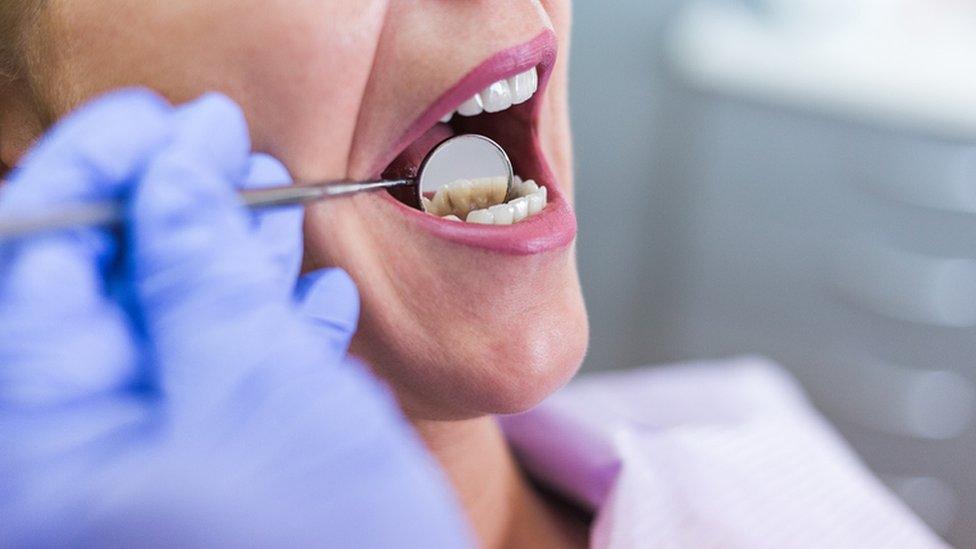NHS dentist charges rise by 5% in England
- Published

An inflation-busting hike in dentistry fees mean NHS patients in England will pay ВЈ1.10 extra for a routine check-up.
The new charges, which begin on Monday, will also see the cost of a set of dentures rise by ВЈ12.80 to nearly ВЈ270.
Dentistry leaders say charges are increasingly being relied on and in the future dentistry could end up as an NHS service "in name only".
But the government said charges were important to help keep services sustainable.
The new charges are:
Band 1 treatment (examination, X-rays and scale and polish) ВЈ22.70
Band 2 treatment (fillings and root canal work) ВЈ62.10
Band 3 treatment (crowns, dentures and bridges) ВЈ269.30
What are the charges for?
Analysis by the British Dental Association shows patient charges are increasingly being used to fund the service.
They account for nearly 30% of the budget, up from just over 20% in 2010.
The government currently invests ВЈ2bn a year in the service - a drop of ВЈ500m in real terms since 2010.
It means England is behind the rest of the UK when it comes to public funding.
Currently, the government funds the service to the equivalent of ВЈ36 per person per year, compared with over ВЈ50 in Scotland and Northern Ireland.
BDA leader Henrik Overgaard-Nielson said charges were discouraging to patients and covering for "savage cuts".
"Unless ministers change course, within a decade our patients will be putting more in at the point of delivery than government," he said.
"The service will be NHS in name only."
What happens in the rest of the UK?
The rest of the UK also uses charges.
Wales has a similar banding system to England - but fees are between a fifth and a third lower.
In Scotland and Northern Ireland, the way charges are applied is quite different, with patients paying 80% of the dentist's fee up to ВЈ384.
In all the UK nations, there are exemptions for children and those on low incomes.
A Department of Health and Social Care official said: "These charges contribute towards the running costs of the whole NHS, including delivering world-class front-line patient care, and we continue to protect the most vulnerable through exemptions and the NHS low-income scheme."
She added nearly half of all treatment provided last year were exempt from charges.
Correction 4 June 2019: This article has been amended to include correct dental charge information for Scotland and Northern Ireland.
- Published31 January 2019
- Published18 October 2017
- Published30 August 2018
- Published20 October 2017